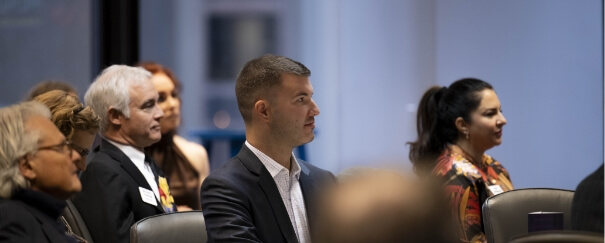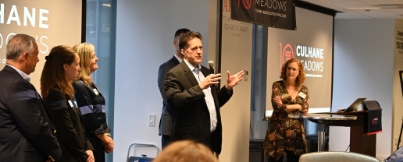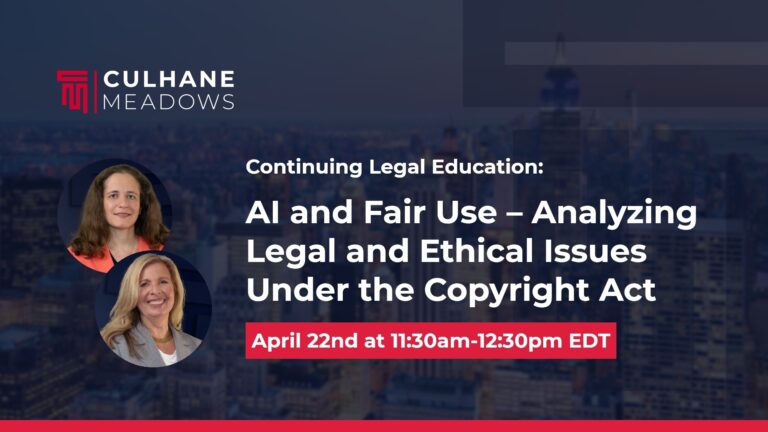Culhane Meadows’ Washington, DC partner Peter Cassat was recently quoted in an article by SHRM about the practical (and scary) implications of speech technology in HR.
Here are a few excerpts from the article:
Conversational artificial intelligence isn’t a thing of the future. It’s here now. It is now possible for technology to artificially replicate an individual’s voice to, for instance, share a voice message from the CEO, respond to common employee questions, offer voice-driven training or just-in-time instruction, and much more.
But while there are practical applications, there are scary ones as well. Could this type of voice technology lead to security breaches—such as when the CEO’s voice asks an employee for a password?
Where is this voice technology going, and what opportunities and risks does it present for HR?
…
Peter Cassat, a partner at Culhane Meadows where his practice focuses on employment, technology, privacy and data security law, points out that the use of voice technology in this manner is considered “phishing”—which is usually the use of e-mail to get someone to do something by posing as someone else. He says he hasn’t yet seen much workplace-related litigation related to phishing using voice technology.
However, the potential is there. Organizations need to get ahead of this potential risk now by educating employees and putting appropriate policies and practices in place.
…
Povolny recommends instituting a standard set of rules to address the type of information employees should—and shouldn’t—supply based on voice requests. “No one should ever ask you to transfer funds, provide private credentials or [take] any other confidential action without providing a method of authentication or identity verification,” he said. “It’s a new way of thinking to trust but verify when it comes to audio, but it is just as valid for a verbal-only transaction as a computer-based transaction.”
Failing to validate based on anything but a voice, Povolny said, “could lead to stolen funds, privileged access to restricted systems of areas, network breaches, personnel tampering and many more damaging scenarios.”
…
Risk exists, both for your company and your employees. Even seemingly innocent pursuits such as using poplar apps like Overdub, Povolny explained, can put people at risk for having their actual voices harvested by nefarious players planning to use that audio data to produce deepfake content.
These apps aren’t “necessarily malicious,” Povolny said, “but many times even the EULAs [end-user license agreements] will contain verbiage that allows the company the right to do whatever they want with that data, given your consent.” Povolny recommended that employees—and, in fact, all of us—”consider your voice and facial identities protected data that you don’t give out easily.”
Read the entire article HERE to learn more.
About Culhane Meadows – Big Law for the New Economy®
The largest woman-owned national full-service business law firm in the U.S., Culhane Meadows fields over 70 partners in eleven major markets across the country. Uniquely structured, the firm’s Disruptive Law® business model gives attorneys greater work-life flexibility while delivering outstanding, partner-level legal services to major corporations and emerging companies across industry sectors more efficiently and cost-effectively than conventional law firms. Clients enjoy exceptional and highly-efficient legal services provided exclusively by partner-level attorneys with significant experience and training from large law firms or in-house legal departments of respected corporations. U.S. News & World Report has named Culhane Meadows among the country’s “Best Law Firms” in its 2014 through 2022 rankings and many of the firm’s partners are regularly recognized in Chambers, Super Lawyers, Best Lawyers and Martindale-Hubbell Peer Reviews.
The foregoing content is for informational purposes only and should not be relied upon as legal advice. Federal, state, and local laws can change rapidly and, therefore, this content may become obsolete or outdated. Please consult with an attorney of your choice to ensure you obtain the most current and accurate counsel about your particular situation.









